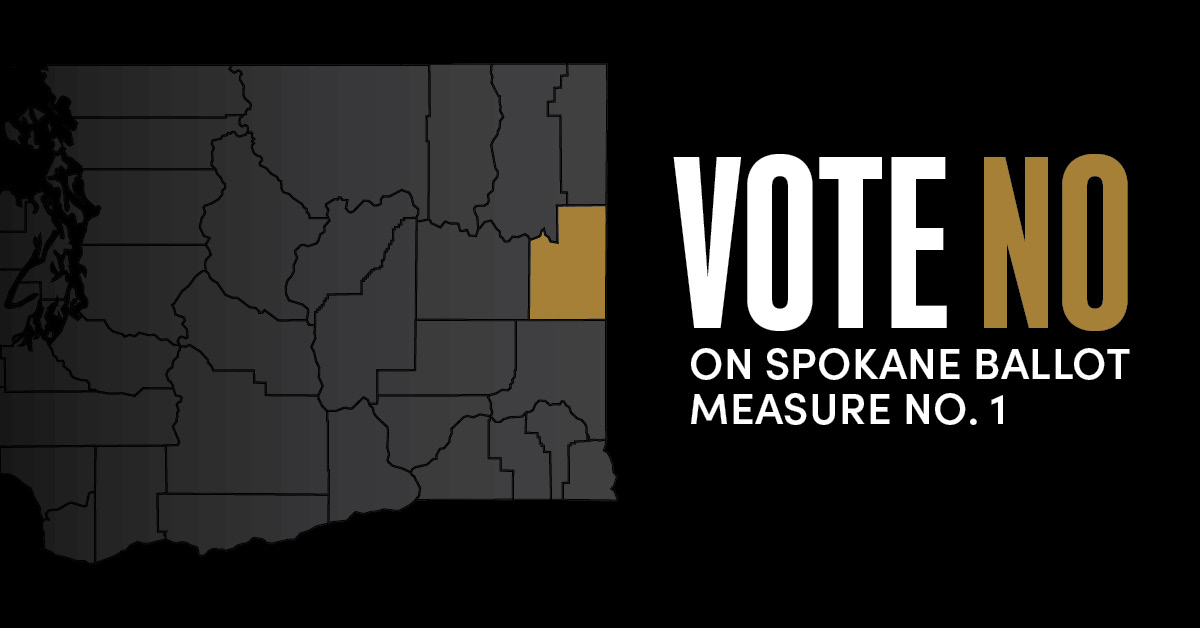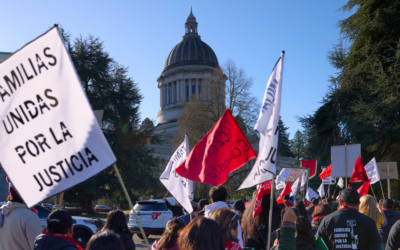Justice Not Jails is a community coalition fighting a proposed sales tax that would fund a new county jail

Photo: Text that reads, “Vote no on Spokane Ballot Measure No. 1” on a black background and a gold silhouette of Spokane County on a map of Washington with surrounding counties in gray.
Inatai Foundation recently contributed $240,500 to the community-based campaign Justice Not Jails to defeat Spokane County Measure No. 1. This harmful measure seeks to expand the county’s jail system in direct opposition to public will and proven research on more effective, equitable solutions. Not only would Measure No. 1 fail in its promise to deliver a safer, more just Spokane County, it would widen inequities within the community.
Like all Inatai’s work, our support of Justice Not Jails is inspired by the bold vision of community leaders who dare to imagine and fight for a different future. For years, grantee organizations and community leaders have fought against attempts to construct a new jail. The people of Spokane want a different world for future generations, where criminalization and institutionalization are not the default solutions. This is reflected in recent polling that shows that most residents oppose an additional tax to fund a new jail. Ignoring these voices, some have stoked fear and invented false claims about the need for the massive jail expansion proposed with Measure No. 1. We view the work of Justice Not Jails as an important effort of community power-building in service to broader systems change in Spokane County.
Increased criminalization has never been about justice. If passed, Measure No. 1 would reinforce a system that continues to devastate communities of color and people living with low incomes in Spokane. Government leaders who support the new jail claim the measure—a new sales tax that would generate approximately $1.7 billion over 30 years—would be used for “criminal justice, public safety, or behavioral health purposes.” In reality, the county’s only stated plan for the revenue is an expansion of a jail system where the majority of people being held are pre-trial—meaning, they have not been convicted of any crime and are stuck there because they cannot afford bail. There is no justice in this.
Despite the county’s insinuation, a growing local population doesn’t have to mean a growing prison population. The overcrowding in Spokane County jails exists only because the county has chosen to ignore alternatives that would minimize incarceration and prevent crime. These alternatives include methods to reduce poverty, increase access to education, and improve mental health services. Likewise, data clearly shows that there is no link between smaller jail populations and increases in crime. When we dismantle these oppressive systems, we can build a community that cares for everyone, not just those with institutional power.
It’s past time that county officials recognize that the people most impacted by structural inequities have the best solutions for real change. That’s one of the reasons we proudly stand behind Justice Not Jails, whose coalition includes formerly incarcerated individuals and community leaders with lived expertise navigating the inequities at the core of Measure No. 1. Defeating the measure would not only stop the expansion of Spokane County’s harmful carceral system, but it would also create an opportunity to pursue research-backed solutions crafted by and for the community. This is the type of transformation Inatai aspires to by shifting the balance of power to community-rooted organizations.
This November, we encourage you to vote “No” on Measure No. 1. Visit https://www.justicenotjails.vote to learn more about Justice Not Jails and their fight to stop the expansion of Spokane County’s harmful carceral system.



